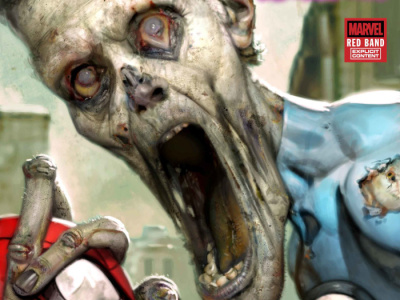
'I Think I Can Manage' is a regular column by retailer Steven Bates, manager of Bookery Fantasy, a million dollar retail operation in
Only a few days after announcing its existence, Kandora Publishing already has determined detractors and salient supporters; in a marketplace as crowded and convoluted as the current comic book industry, I'd say that's a pretty good indicator that the company's worth more than a passing glance. Poised to fill the void left by the collapse of CrossGen, Kandora can't escape comparison to that tyro from
'Sounds like' and 'is' are worlds apart.
First, CrossGen should've succeeded. There's really no need to rehash the events that led to its demise. Suffice it to say that CrossGen was sundered, like many pretenders to the throne, by pride. That, and fiscal irresponsibility. But as a publisher, CrossGen was cutting edge. By publishing 'lost' comic book genres like fantasy, sword & sorcery, science fiction, mystery, and horror, written and illustrated by topnotch talent, CrossGen carved a comfortable niche in an industry dominated by super-heroes and costumed vigilantes. Like Monty Python, it was time for something completely different, and CrossGen delivered. Fans flocked to the fledgling publisher, and critics sang the praises of the little company that could. Overnight, CrossGen became the comic book company to watch. Entrepreneurial and entertaining, they captured the attention of mainstream media as well as loyal readers, and inevitably came to the attention of the mouse that roars, The Walt Disney Company. When CrossGen's assets were auctioned off, Mickey and friends snagged them up (it should go without saying that any company that Disney buys must be on to something).
Now Kandora steps up, trying to fill CrossGen's swashbuckling boots with books like Barbarossa & The Lost Corsairs, Jadefire, Savage World, and Monarchs of Manhattan-a pirate comic, martial arts epic, post-apocalyptic fantasy, and sword & sorcery comedy. Any of these titles could easily have been published by CrossGen, which offered similar menu items in El Cazador, Way of the Rat, Sojourn, and Tales of the Realm. Of course, as any connoisseur can tell you, both McDonalds and Burger King sell hamburgers, but the Big Mac and the Whopper are as different as burgers can be. Comics are no different, and Kandora's material is sure to find an audience, given a chance. The big question is, will they get that chance? And should they?
To be certain, retailers and fans have been burned too many times in the past. They throw their support behind a publisher or imprint, investing time and money and emotional energy in a group of books, only to see that universe implode. The list reads like a veritable 'Who's Who' of small and not-so-small press publishers: Continuity, Valiant/Acclaim, Malibu, Dynamic, Defiant, Broadway, Marvel's New Universe, DC's Impact, CrossGen, and on and on and on ... No matter how good, how enticing, how involving each of these universes were, ultimately they failed, leaving readers in the lurch and sticking retailers with virtually unsaleable back issues. Buying into another new universe now seems to make about as much sense as voting for Ralph Nader--is there a point?
Managing any small business is a combination of conservatism and experimentation, of following the pattern and breaking the mold. It's equal parts risk management and risk-taking, and often the only data on hand is gut instinct. Supporting Kandora-or any new publisher-has got to be one of those decisions for both retailers and fans. For the record, I will be ordering Kandora's new releases, cautiously. Just as I supported Devil's Due Publishing's Aftermath line, Michael Turner's Aspen Comics, and the relaunched Atomeka, I'll be stocking Barbarossa and Jadefire. If I like what I read, I'll promote it, pushing the books towards former CrossGen customers and others receptive to offbeat comics. I consider myself a smart retailer; I know that my business is successful primarily because of DC and Marvel fans, and I will continue to buy, sell, support, and read the 'Big Two.' But I also see the benefit of supporting the little guy. Offering choices to my customers makes my store a more diverse and interesting place to shop, and broadens my appeal to people seeking alternatives to super-heroes. How will customers find them if I don't rack them? Isn't that my job?







